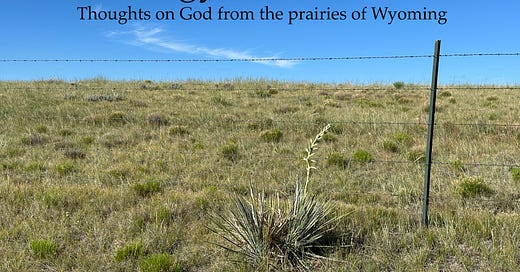So, you’ve sat down to study the Bible and see what God has for you to learn today. Maybe you’re a little short on time, so you decide to read just one verse. Naturally, you flip your Bible open and it lands in the middle, somewhere in Psalms. You skim down the page and read Psalm 46:5, “God is within her, she will not fall; God will help her at break of day.”
“Wow, that’s encouraging!” you think. “I’m so glad that God has promised that because He is within me I won’t fall and that He’s always here to help me.” You close your Bible and carry on with your day.
Unfortunately, by not including the context of the surrounding verses in Psalm 46, you completely miss what the Psalmist is actually talking about.
There is a river whose streams make glad the city of God,
the holy place where the Most High dwells.
God is within her, she will not fall;
God will help her at break of day.
Nations are in uproar, kingdoms fall;
he lifts his voice, the earth melts.
Psalm 46:4-6 (NIV)
You only have to read the surrounding verses to understand that “her” doesn’t refer to a person (much less to you personally), but refers to “the city of God,” the “holy place.” So now, to understand what the Psalmist means by “the city of God” you have to zoom further out to an even broader context.
You decide to read through a few of the surrounding Psalms to see if those help you. Psalm 45 seems totally unrelated and Psalm 47 gives similar praise to God but doesn’t use any of the key words you’re looking for. Then, you read Psalm 48:
Great is the Lord, and most worthy of praise,
in the city of our God, his holy mountain.
Beautiful in its loftiness,
the joy of the whole earth,
like the heights of Zaphon is Mount Zion,
the city of the Great King.
God is in her citadels;
he has shown himself to be her fortress.
Psalm 48:1-3 (NIV, emphasis added)
The Psalm names the city of God as “Mount Zion.” Luckily, you live in the age of Google and you can easily find out where Mount Zion is. But the more you read your Bible and gain knowledge of the greater context and overarching themes in Scripture, the more easily you’ll be able to make these connections on your own.
Sitting with your Bible on your lap, you may remember that Mount Zion is mentioned throughout the Old Testament, and is a location in the land that God promised Israel - Jerusalem. You realize that God’s promise of protection and security is to Jerusalem. From that you can learn of God’s faithfulness and promise-keeping, which does indeed apply to you today.
I hope this illustrated just how important context is. Context starts at the surrounding verses and works outward through chapters, books, and the Bible as a whole. Studying the Bible within its historical and cultural context will deepen your study even further and prevent misinterpreting and misapplying Scripture.
As a side note, I have seen Psalm 46:5 on coffee cups and inspirational memes misquoted as “God is within her, she will not fail.” There is no version of the Bible that uses the word “fail.” While fail and fall may convey similar meanings, the verse both taken out of context and misquoted gives readers an unbiblical understanding that God’s presence in your life prevents failure (I think all of us know that to be untrue). This is why it’s so important to examine and compare everything with what the Bible actually says.




